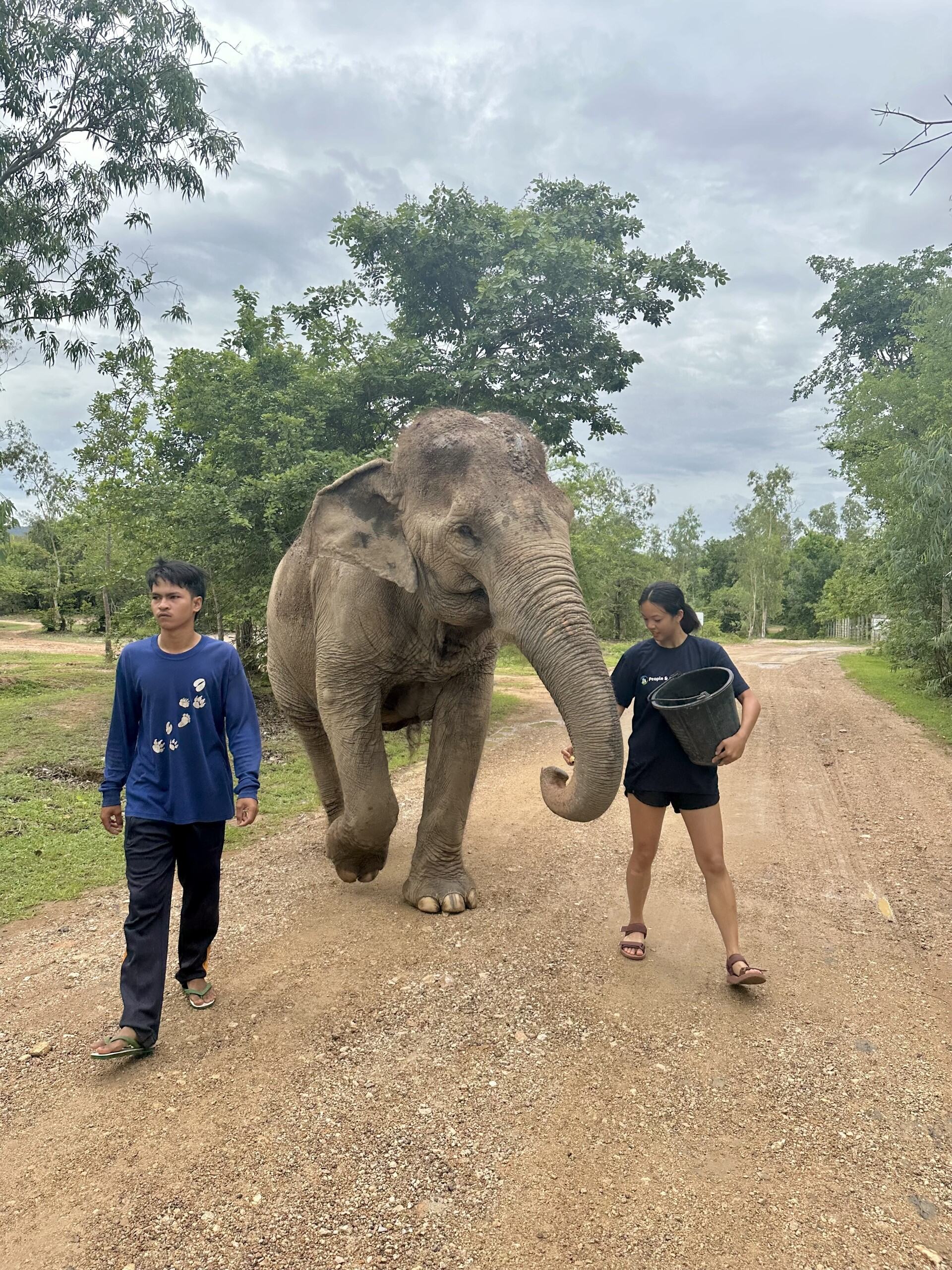Anyi Liebler-Bendix - Thailand
For my summer 2024 Global Programs experience, I had the incredible opportunity to participate in a three-week externship with the Wildlife Friends Foundation of Thailand, or WFFT. This experience took me across two unique projects, each focusing on different aspects of animal welfare and conservation.
During the first two weeks, I volunteered with People and Animals Thailand, or PAT for short, in Cha-am. PAT is a local community project focused on managing stray overpopulation and reducing the prevalence of rabies. They operate as a trap-neuter-release clinic, providing vaccinations, and treating various injuries, skin infections, and even cancer. Each morning, the dog catching team brought in stray dogs caught using drop-traps or by community care takers. Under the guidance of Dr. Ta, we treated around 10 dogs and 2 cats every day, giving me the opportunity to practice and enhance my clinical skills, such as intubation, catheter placement, vaccine and drug administration, and anesthesia monitoring. I was also able to perform multiple neuter procedures on dogs and one cat spay, gaining valuable hands-on surgical experience that I will take forward and improve on as I continue my education. Once vaccinated and spayed or neutered, they were released back to the communities they came from.

During my stay, I also got to witness the long-term care of two dogs, Romeo and Moo Moo, who were brought to PAT by community members. Romeo most likely had distemper and parvovirus as a puppy and Moo Moo was hit by a car. Getting to see these dogs have a second chance at life is just one of many reasons why the PAT clinic is such an important and valuable part of the Cha-am community. The PAT clinic is also a mobile high volume spay and neuter clinic, so we were invited to the Wat Tham Suea temple, where we helped 26 dogs that were staying at the temple or in the local area.


In Thailand, the traditional concept of a pet dog, like we often see in America, is not as common. Here, many of these dogs are cared for by the local community. Neighbors come together to provide food and shelter for these strays, reflecting a unique and compassionate approach to animal care. Clinics like PAT play a crucial role in ensuring that affordable and accessible veterinary care is available for these street animals. This not only supports the wellbeing of the dogs, but also ensures the safety of the community members. I am grateful to have had the chance to learn about veterinary medicine through a different cultural lens and gain more understanding of the needs of the local Thai communities.

In my third week, I joined the WFFT Elephant Refuge team in rural Phetchaburi, where I worked with other volunteers to care for 23 rescued elephants. The Elephant Refuge serves as a sanctuary for elephants rescued from abuse, exploitation in tourism and trekking camps, or breeding operations. Working alongside mahouts, who are the expert elephant handlers, I gained valuable insights into caring for these beautiful animals. Our jobs were to make and feed the elephants banana balls, harvest banana trees, clean enclosures, bathe the elephants, and make enrichments to help keep them both mentally and physically stimulated. Each task, though challenging, was a reminder of the importance of conservation and the role we all play in protecting these gentle giants.
My time with the WFFT has left a lasting impact, one that I will carry with me as I continue my journey in veterinary medicine. I am forever grateful for the people I worked with and met this summer, and for Global Programs for making this all possible.
